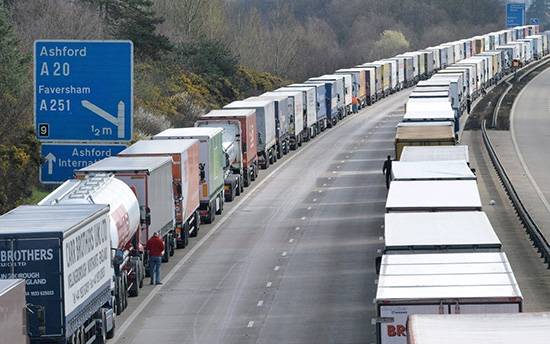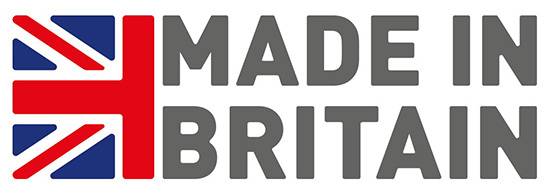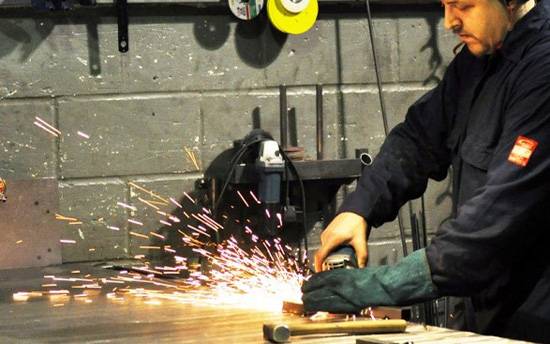UK Manufacturing in a Changing Europe
- Impulsepop Writer

- Jan 29, 2021
- 3 min read
A growing number of retailers and courier firms are suspending or cutting back deliveries into the EU as companies grapple with new border controls as well as import taxes.
The delays at the border are becoming a large problem concerning roll outs heading for Europe, without an easy solution ahead.
DPD said new border procedures, including additional customs paperwork, needed for parcels destined for Europe were putting extra pressure on turnaround and transit times. The company said it was returning one-fifth of parcels to the sender because they had incorrect or incomplete data attached. It also blamed delays and congestion at UK ports for its decision, as well as more rigid requirements for Channel crossings. These problems are not just the smaller end of the parcel chain but are echoing throughout all logistic companies including larger freight, pallets and containers, which affects all industries Inc. food, clothing, the automobile industry and sourcing raw materials.

UK Manufacturing
Manufacturing goods account for about 10 per cent of the UK economy, and 45 per cent of UK exports. In 2015, just over half of manufactured exports went to the EU.
Carmakers (one of the largest manufacturing exporters), aerospace and pharmaceuticals industries have in the past few months demanded that the UK stay in the Customs Union for as long as possible. These industries have complex supply chains. Their components often cross the border between the UK and other EU countries several times before final products assembled. Now the UK is not in a customs union with the EU, there will be extra red tape and costs every time these goods cross the border. So these costs may be passed onto the consumer.
Interestingly a notable and positive study was a global survey carried out by Statista in 2017. The survey asked buyers worldwide to rank countries according to the perceived strength of their country of origin. The UK was the 3rd highest ranked individual country for its ‘made in UK’ label. Only Germany and Switzerland came higher, whilst the ‘EU’ as a conglomeration of countries came in third. (Which is bizarre considering you don’t often see anything labelled as made in EU!)
They surveyed 8,060 consumers across eight international markets – France, Germany, Republic of Ireland, USA, China, India, the United Arab Emirates and South Africa – to find out the average price differential they are willing to pay for UK products. The results were very positive. The Barclays Made in Britain report found that consumers consider provenance an important influence on their decision to purchase products. UK goods, in particular, are perceived as high-quality, reliable, internationally respected, and good value for money.

So, the interesting possibility to all this export/import border chaos for manufacturing is… we are finding some UK brands are starting to source manufacturing within the UK rather than China etc. to avoid the extra admin charges and the greater border delays. Hopefully, this will become more of the norm for the future of UK’s manufacturing industry, once the confidence factor filters through to other brands the UK can continue to be a strong manufacturing industry. The picture continues to look positive for Britain some of the biggest opportunities lie in emerging markets, where British craftsmanship is most valued. The prize is substantial, and British manufacturers should be looking to highlight the provenance of British products for the best advantage.
The Made in Britain label has value for a reason – the perception of quality has been formed over years of producing exceptional goods, therefore, the correlation between UK-made and quality is becoming stronger, UK manufacturing for the future looks positive, maybe the UK won’t have to compete with the overseas market so much and we can produce much more within the UK rather than out-sourcing. The UK is strong!
Here at Impulse we manufacture ON SITE, see how we can enhance your brand and manufacturing projects.
The economic recovery of this country is reliant on how we respond to the demand for products as the world starts to come out of lockdown.
January has seen a marked increase in activity, and Impulse is pleased to report a threefold increase in enquiries, with a much stronger forward order book.
Supporting local and national businesses is crucial now, and its good to see global brands turning to us now as a reliable source of both creative and manufacturing product.
We accept that there is a financial burden when used to buying from the far east, but we do offer reliability and quick turnaround, which is also critical to the recovery.








Comments